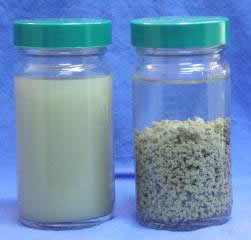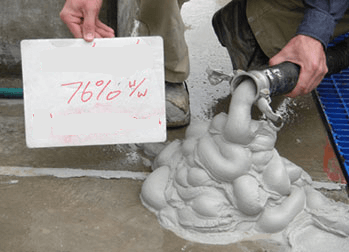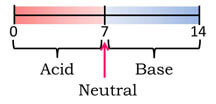
If, for some reason, the thickener’s settling rate is too slow, as in the case of the grind being so fine or you are dealing with clay rich ore and now the concentrate stays in suspension. The thickener could be “sliming” and will produce a dirty overflow combined with a low density underflow.
If this is a problem, a reagent called a FLOCCULANT is added to the thickener feed.
A flocculent causes the slimes -to form into small masses of mineral. This will make the thickener load settle. Flocculants may be purchased under different trade names both in liquid or dry form.
If you do not have a true flocculant on site you can use a common substance that is also used as a flocculent is CaO better known as lime. The use of a flocculent must be carefully regulated however as there is a danger to the equipment. Why add lime to thickener? Yes you can use lime as a flocculant or to help your flocculate and settle.
Things That Matter to Flocculants—Several factors affect how flocculants work. By increasing the amount of kinetic energy in a solution through stirring or heating, flocculants have a faster impact on the particles. This phenomenon occurs because as kinetic energy is added to solution, particles move faster and therefore clump with the flocculant at a faster rate. The volume of solution and flocculant can also affect flocculation. Chances are, if a large amount of water is being cleaned, a larger amount of flocculant is needed. The most effective dose may also change depending on the flocculant type, which is often dictated by the available charges or size of the flocculant. Additionally, the water’s pH can affect the performance of a flocculant. The pH scale is used to determine how acidic or basic the water is. Most flocculants work best at neutral conditions (pH 7) while some work independently of the pH.
Flocculants are categorized as anionic, nonionic or cationic and therefore affected by pulp pH. Basic thickener operation will have you understand the simple electrics of water. For lack of proper testing, you will need to buy a floc that fits your chemistry or modify it using lime.

